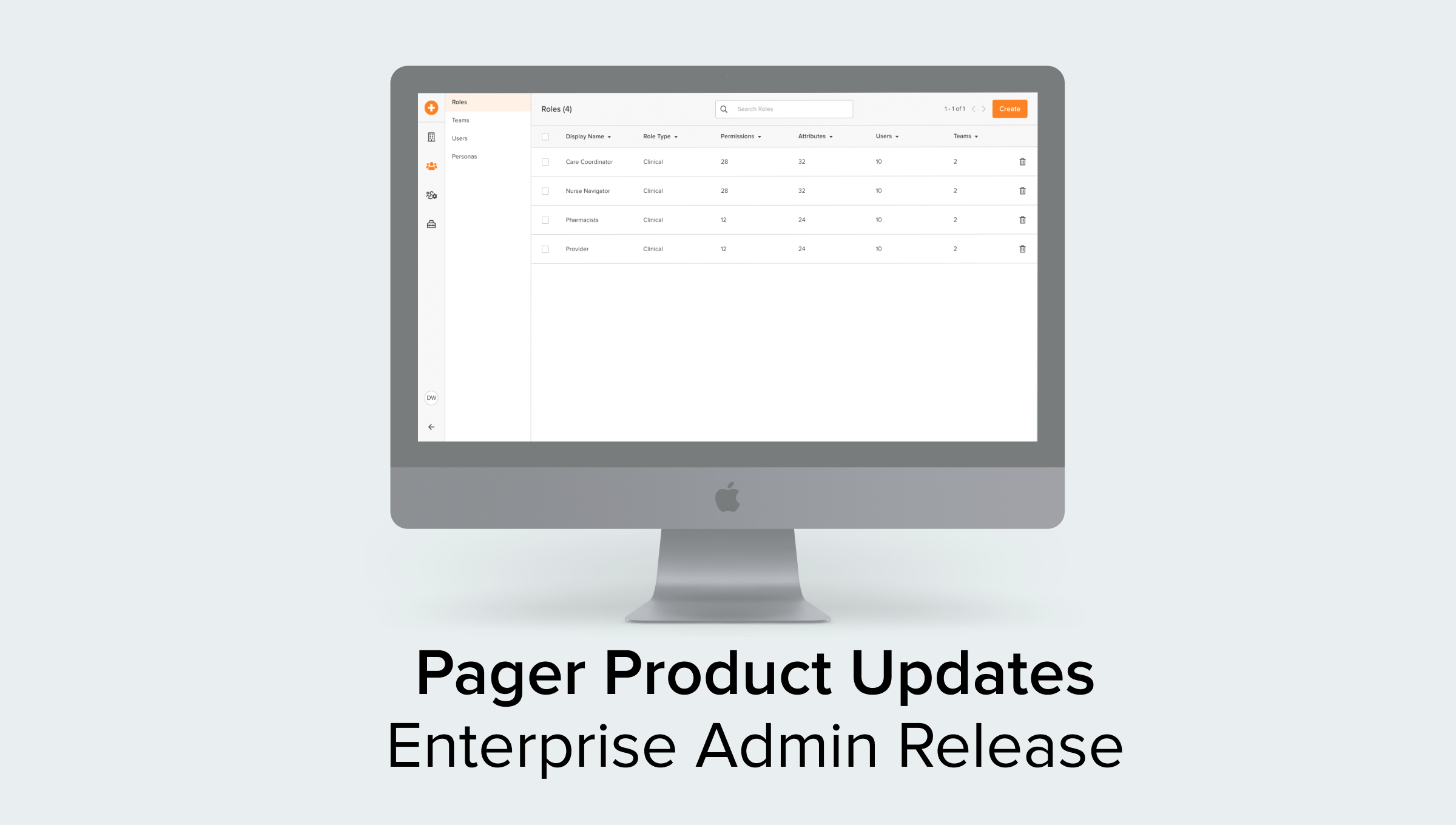The New Pager Enterprise Admin
Teams change over time – as an organization adds new team members and services, the tools and rules you use to support consumers must change as well.
This requires a level of flexibility which can be difficult without a robust administrative suite to meet your organization’s unique structure and requirements.
To solve this enterprise business need, Pager’s product, design, and engineering teams have worked diligently to launch our new Enterprise Admin platform. The Enterprise Admin offers clients the ability to customize and configure their Pager Command Center – the platform supporting agents’ communication with patients – to meet the unique needs of their organization. The new platform offers an intuitive user interface and robust features to adapt permissions, rules, attributes, and service options at the team, role, and user levels. This launch includes more than 20 new capabilities that allow clients to self-manage their workforce and deploy automation, improve workflows, and create team efficiencies.
While we’re excited about all of them, here are three major new updates and features that stand out:
An intuitive user interface
The Enterprise Admin has been designed with a streamlined, clean UI and intuitive features to make configuring the Pager experience simple and straightforward for administrators. Any action is only two clicks away.
The Enterprise Admin has an intuitive interface that enables administrators to easily configure their experience. Roles, seen above, can be customized with permissions, attributes, and more.
Team and user configurations
The platform enables administrators to organize their workforce across different levels: roles, teams, and users. These three levels of configuration define when an individual user is deemed appropriate to be pulled into a chat with the consumer and what services they are vetted to provide (what we call their “Routing Profile”).
Roles
A role is the job profile that is assigned to users. Common roles in Pager’s ecosystem are nurses, care coordinators and doctors, but is completely configurable by clients to meet their needs. Permissions granted here enable role-based access control for the entire Pager ecosystem.Teams
A team groups users and roles together in the Pager ecosystem. . For example, organizations can use teams to organize agents by state, shift, or particular areas of expertise, and any user and role can be grouped to more than one team.Users
A user is an individual agent or provider on the Pager platform.
Roles can be created within the Pager Enterprise Admin by administrators to align with existing organizational structures. Common roles include nurses, physicians and care coordinators.
Attributes and Skills
Attributes are qualities or skills that can be assigned to users, roles and teams. Attributes enable the assignment of various skills across users, roles and teams that drive skill-based chat routing.
Administrators can assign attributes, such as a language spoken, or a state in which a nurse has a license, to individuals, teams, or roles. As a result, nurses who have the appropriate attributes can accept chats from patients with particular issues. This means that a nurse who speaks Spanish and is licensed to practice in Colorado is assigned to care for a Spanish-speaking patient in Colorado. Administrators can configure this for individuals, for all nurses, or for particular teams of nurses, and can create virtually any attribute they decide is relevant, as long as they collect that information from the patients.
Administrators can seamlessly create and configure attributes, like languages, and assign these attributes to users, teams, or roles to enable skill-based routing – so patients are matched with agents who can best meet their needs.
These new features in the Enterprise Admin further support existing Pager solutions and ensure that tools and services offered through the platform are flexible enough to meet each client’s unique needs. With the Enterprise admin, teams and individuals at all levels will be better equipped to service patients efficiently and effectively, offering a better experience for both agents and patients.
This update showcases just a small portion of our Enterprise Admin’s capabilities – to learn more, contact us at hello@pager.com.
Stay up to date with new data, updates, and reports.




